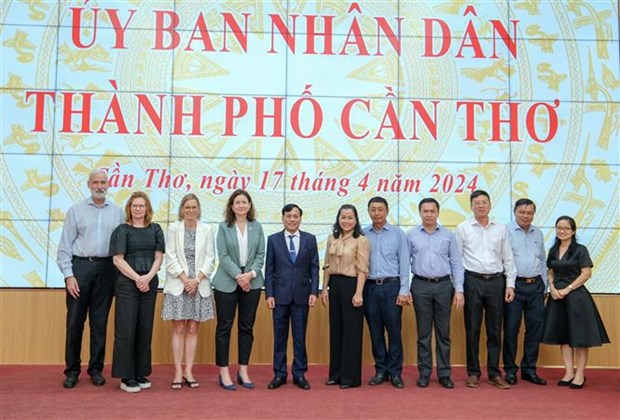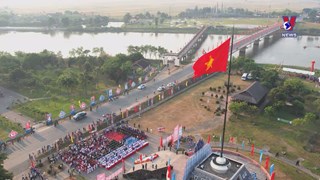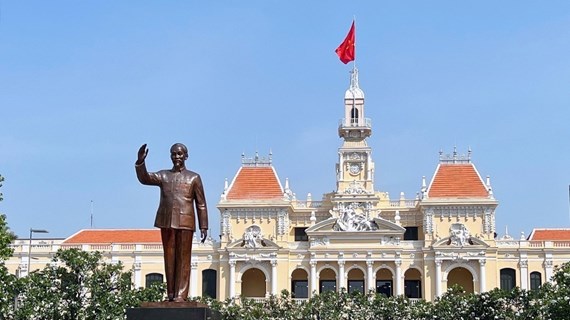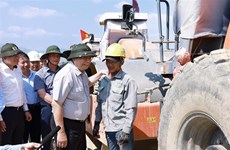Can Tho explores climate change cooperation with foreign countries
Leaders of the Mekong Delta city of Can Tho on April 17 met with a visiting delegation from the Embassies of Canada, New Zealand, Norway, and Switzerland to discuss issues related to erosion, climate change, migration, and the city's current needs for support and cooperation.
 Representatives of Can Tho and the visiting delegation from the Embassies of Canada, New Zealand, Norway, and Switzerland pose for a group photo. (Source: VNA)
Representatives of Can Tho and the visiting delegation from the Embassies of Canada, New Zealand, Norway, and Switzerland pose for a group photo. (Source: VNA)Leigh McCumber, Deputy Ambassador of Canada to Vietnam and head of the delegation, said that the four countries have been long-term development partners of Vietnam, with their collaboration lasting for 23 years to date.
Nguyen Ngoc He, Vice Chairman of the municipal People's Committee, said the city wants to receive support from these nations in various matters such as enhancing community awareness of climate change, adaptation solutions, natural-based approaches, livelihoods, methane emission and plastic waste reduction, water conservation, and riverbank erosion prevention.
Can Tho, like the rest of Vietnam, is in the process of development with limited resources, hence an aspiration to cooperate with international organisations, including the four countries, to respond to climate change and ensure people’s livelihoods, the official noted.
At the meeting, delegates discussed issues of the four nations' interests, such as the one-million-hectare high-quality, low-emission rice project freshly launched in the Mekong Delta and livelihood issues involving local people affected by climate change.
McCumber said that the areas in which Can Tho wants to collaborate align well with the interests and ongoing programmes of the four nations concerning better community awareness on CO2 emissions reduction, plastic pollution, and nature-based development solutions.
The information gathered from the working session will assist the embassies in proposing more relevant policies and cooperative programmes that suit Vietnam’s current needs and future challenges./.












